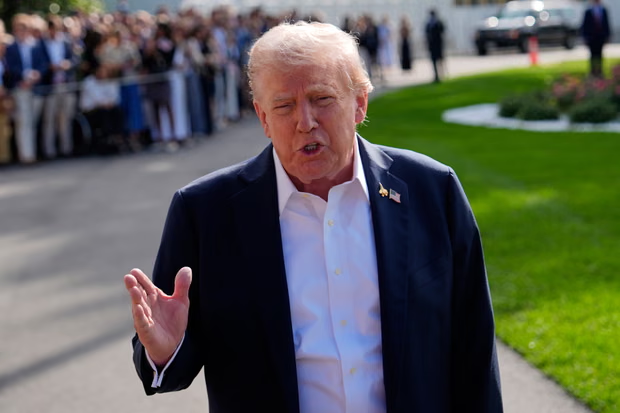Donald Trump has redefined how Americans view political scandals by openly flaunting misconduct that previous presidents would have hidden. Unlike Richard Nixon, who faced Watergate in secret, Trump appears unconcerned by explosive revelations, often broadcasting them himself. His public approach has led some observers to say that scandals that once could end careers now risk losing their impact entirely.
Larry Sabato, director of the Center for Politics at the University of Virginia, warned that openly displaying corruption is dangerous. “People assume that if it were really corrupt, it would be hidden,” he said. “It’s a false assumption, but many have it. It’s a new theory of scandal.” Trump’s actions demonstrate this theory vividly.
Last weekend, he posted on social media targeting Attorney General Pam Bondi, complaining about the lack of legal action against former FBI director James Comey, Senator Adam Schiff, and New York Attorney General Letitia James. “We can’t delay any longer, it’s killing our reputation and credibility. They impeached me twice, and indicted me five times OVER NOTHING. JUSTICE MUST BE SERVED, NOW,” he wrote, later replacing the post with a supportive message.
The justice department followed through by charging Comey with false statements and obstruction during congressional testimony related to the 2016 Russia investigation. Democrats called it a “disgraceful attack on the rule of law,” while Republicans, who once forced Nixon to resign over Watergate, mostly remained silent. Critics argue the move reflects tactics more common in authoritarian regimes than in the United States. Richard Painter, a former White House ethics lawyer, said, “It’s what prosecutors do in dictatorships. You piss off Putin and end up in a gulag. That’s not how we should run our country.”
Trump has consistently used public crises to his advantage. Over the past decade, he has shown that a constant flood of scandals diminishes their individual impact. Larry Sabato explained, “It becomes background noise. What’s Trump done today? Then you shrug and have your third cup of coffee.” Political commentator Kurt Bardella added that his behavior has been normalized, particularly because the public saw many actions coming during his campaigns.
The president’s history includes publicly condoning sexual misconduct on the 2005 Access Hollywood tape, urging foreign governments to investigate rivals, and openly admitting he fired Comey over the Russia probe. He has also promoted false claims about the 2021 Capitol riot and issued pardons to rioters on his first day back in office. More recently, he defended receiving a $400 million luxury plane from Qatar for use as Air Force One, a deal raising constitutional concerns under the emoluments clause.
Observers note that the frequency and scale of Trump’s controversies desensitize the public. Actions that would once dominate headlines for weeks are now absorbed into the rapid news cycle, often dismissed by voters who have grown accustomed to his behavior. Wendy Schiller, a political science professor at Brown University, emphasized that institutional checks have weakened. “Congress and the courts have been co-opted or taken over,” she said. “There isn’t a counter voice to tell the American people this is unacceptable.”
Trump’s open defiance also resonates with his core Make America Great Again supporters. During the 2016 campaign, he dismissed accusations of tax avoidance by declaring, “That makes me smart.” Comedian Dave Chappelle argued that such behavior made Trump relatable, describing him as an “honest liar” who speaks plainly and defies elite expectations.
Pollster John Zogby observed that his base admires his willingness to break rules. “The very fact that he breaks all the rules so brazenly adds to the appeal,” Zogby said. “He does and says what a lot of people wish they could, and he gets away with it. With Donald Trump, the one piece of authenticity is he is exactly what he says he is.”
Trump’s public corruption, aggressive use of power, and disregard for traditional norms have transformed political scandals in the United States. His approach blurs the lines between misconduct and acceptable behavior for a president, challenging voters, lawmakers, and the media to reconsider what constitutes a crisis. In this new landscape, scandal may no longer shock, and political missteps are increasingly measured by their audacity rather than their legality or ethics.







